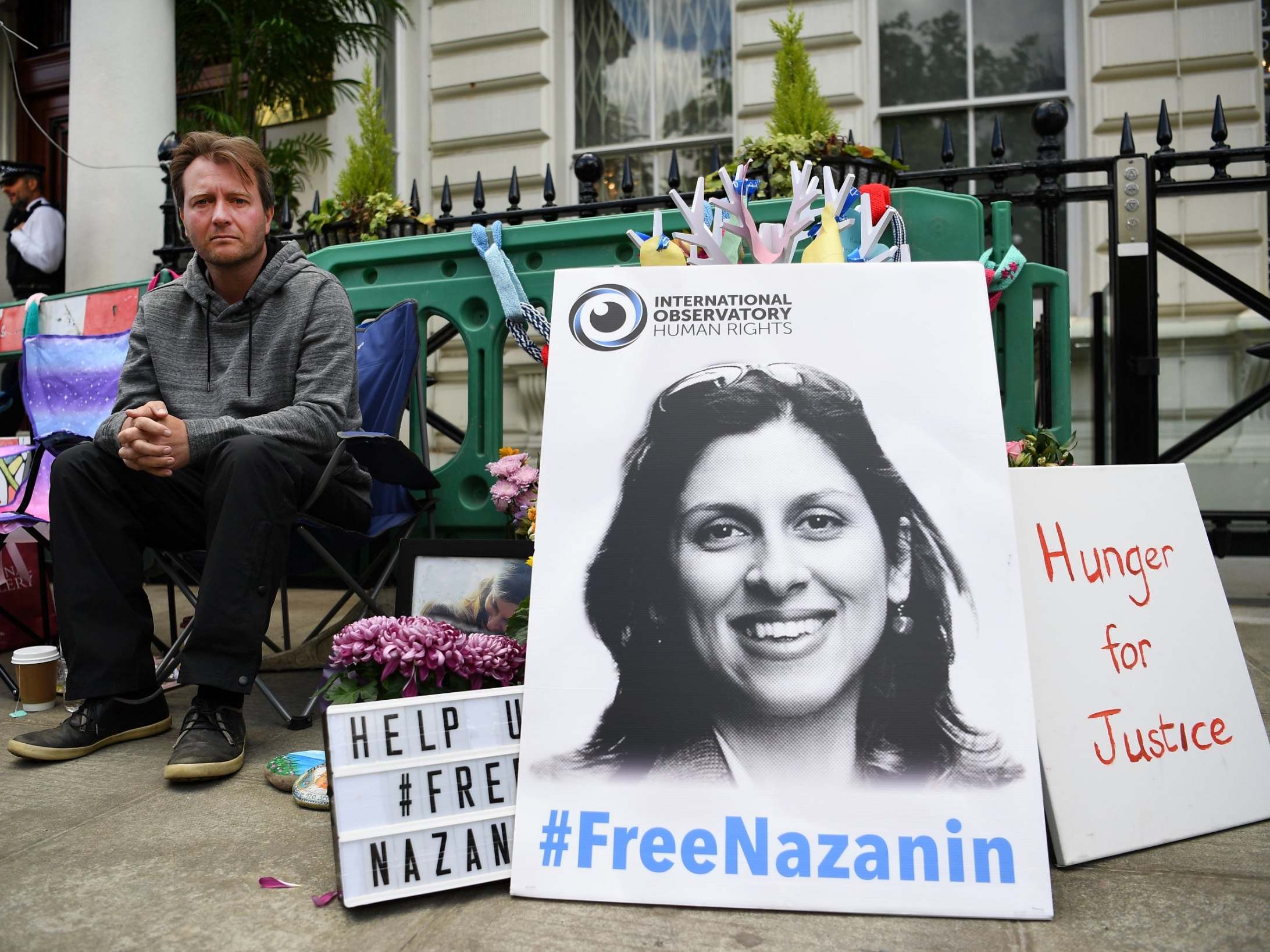Nazanin Zaghari-Ratcliffe returned to prison after psychiatric ward 'torture'
British-Iranian mother chained to hospital bed in solitary confinement, husband says

Your support helps us to tell the story
From reproductive rights to climate change to Big Tech, The Independent is on the ground when the story is developing. Whether it's investigating the financials of Elon Musk's pro-Trump PAC or producing our latest documentary, 'The A Word', which shines a light on the American women fighting for reproductive rights, we know how important it is to parse out the facts from the messaging.
At such a critical moment in US history, we need reporters on the ground. Your donation allows us to keep sending journalists to speak to both sides of the story.
The Independent is trusted by Americans across the entire political spectrum. And unlike many other quality news outlets, we choose not to lock Americans out of our reporting and analysis with paywalls. We believe quality journalism should be available to everyone, paid for by those who can afford it.
Your support makes all the difference.Nazanin Zaghari-Ratcliffe, the British-Iranian woman jailed in Iran for alleged spying, has been transferred back to prison from a hospital psychiatric ward she described as “torture”.
Her husband Richard Ratcliffe said his wife had been kept in solitary confinement and chained to hospital bed before she was returned to jail on Saturday.
She was moved from Evin prison to the mental health ward of Tehran’s Iman Khomeini hospital last week.
But she was transferred back to to prison after breaking out of her bindings and telling security guards she was at risk of self-harming if she remained in the ward, said Mr Ratcliffe, who spoke to his wife on Sunday and Monday.
Ms Zaghari-Ratcliffe had been “broken” by her time in hospital and was “relieved” to be back in prison, her husband added.
He said she told him: “They did all they could to me – handcuffs, ankle cuffs, in a private room two metres by three metres, with thick curtains, and the door closed all the time.
“I wasn’t allowed to leave the room, as I was chained to the bed. It was proper torture. It was tough, and I was struggling.
“To be honest, I never thought I would end up there. I always found myself strong, and then finding myself there – it was really traumatising.
“There was no justification for it. I am cross at them. I am not scared. The amount of scars I got. I have been put through hell.”
Ms Zaghari-Ratcliffe, 40, was arrested at Tehran’s Imam Khomeini airport while travelling with her young daughter in April 2016. She was sentenced to five years in prison after being accused of spying, a charge she vehemently denies.
Her admission to a mental health unit came after she went on a 15-day hunger strike last month in protest against her “unfair imprisonment”.
Mr Ratcliffe joined the hunger strike in solidarity with his wife, and camped on the pavement outside the Iranian embassy in London.
Their constituency MP, Tulip Siddiq, on Monday called for questions to be answered after Sir Alan Duncan, the outgoing Foreign Office minister, said “fruitful” talks about Ms Zaghari-Ratcliffe's release had been brought to an “abrupt halt”.
In his resignation letter, Sir Alan said he remained “deeply upset that some fruitful discussion I had initiated about the possible release of Nazanin Ratcliffe were brought to such an abrupt halt”.
Ms Siddiq, MP for Hampstead and Kilburn, said she had tabled questions to the Foreign Office about Sir Alan’s remarks, which came in the minister’s resignation letter.
She added the government “seems to have lost any semblance of control” over Ms Zaghari-Ratcliffe’s case.
Sir Alan, a prominent critic of Boris Johnson, quit as a Foreign Office minister ahead of Tuesday’s announcement of the new Tory leader.
Mr Johnson is widely expected to defeat Jeremy Hunt, the foreign secretary, to become the Conservative leader and prime minister.
In 2017, Mr Johnson faced calls to resign after he erroneously stated Ms Zaghari-Ratcliffe had been “teaching people journalism” in Iran. The remarks were seen as putting her at greater risk, as she had always maintained she was in the country on holiday.
Earlier this year, Mr Hunt granted Ms Zaghari-Ratcliffe diplomatic protection in a bid to resolve her case.
The latest developments in Ms Zaghari-Ratcliffe’s case come amid heightened tensions between the UK and Iran over the seizure of a British-flagged tanker in the Persian Gulf.
Join our commenting forum
Join thought-provoking conversations, follow other Independent readers and see their replies
Comments